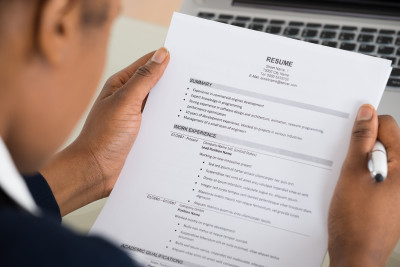Resume 101: Creating an Effective Resume
Impactful Resume: As a 30 year technical recruiter, I have conservatively read 800,000 resumes. Printed out they’d fill a good size room. When the vetting process is complete, I have ultimately represented approximately 1% of those resumes / candidates to our highly selective clients. Approximately eight thousand introductions have been made. Having received feedback on about 90% of those introductions, I have had 7,200 conversations with hiring authorities about what they like and don’t like. The following is informed by those conversations.
So what goes into making an impactful resume, anyway?
For the sake of this discussion, I’ll break resumes down into two basic groups; historical documents and vehicles to your future.
The vast majority of resumes fall into something I call historical documents. They are an account, hopefully with an economy of words, of what the person has done in their job history. Often they are filled with acronyms or vocabulary specific to that company or industry. In general, they are excellent devices for landing the job the candidate is currently in or recently had.
This may be appropriate for candidates seeking an internal transfer or perhaps a job with their employer’s nearest competitor, but in general they leave something to be desired.
Why?
Putting ourselves in the place of the resume reader, we can see that someone not explicitly familiar with the company or industry will be at a distinct disadvantage.
Questions that go through the readers’ mind of such a document: What type of company does this person work for currently? What products/services do they offer? What do the acronyms on the resume mean? What do words like facilitate, coordinate, provide, support really mean?
Do those words actually generate a clear picture of the duties and responsibilities of the role you are describing? Or do they create a vague understanding of activities you were in some way involved? In other words, do your words clearly inform or leave the reader confused?
The second type of resume is that which acts as a vehicle to your next role.
It briefly describes each employer and is free of acronyms and industry jargon. Importantly, it also uses action words that create a clear image of your duties, responsibilities and accomplishments. Words are chosen that are understandable to someone not familiar with the industry, company or the role. It employs the active tense to describe those duties and responsibilities.
Further, this information is chosen in light of the type of role you are actually seeking. Do your research, talk with people. What is next for you? Define your career path and level set your goals and expectations. Then check out posted jobs that move you toward that goal. (Indeed.com is a useful job aggregator for this.) As you compose your resume, use language and vocabulary that is similar to the role(s) in which you are interested. In short, describe the old position in a clear fashion employing the vernacular of your future role.
In the end, it is really about where you are going not where you have been. Make sure your resume is doing its’ job of propelling you in the right direction.






